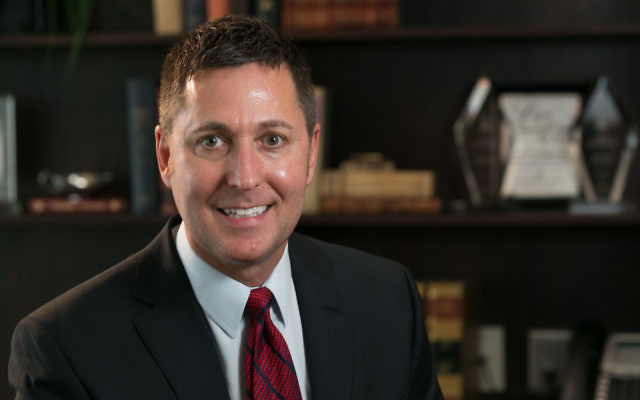Alembik Warns of Risk of No Jewish Judge in Fulton
Two three-way Superior Court elections, each involving a pair of Jewish candidates, resulted in one winner and one runoff Tuesday, May 24.
Gary Alembik and Andrew Margolis, both members of Ahavath Achim Synagogue, ran against Eric Dunaway in Fulton County to succeed Wendy Shoob, who is retiring. Dunaway and Alembik advanced to a runoff July 26, while Margolis was 3,000 votes behind Alembik in third.
Alembik underscored the importance of Jewish turnout, given that Shoob is Fulton’s only Jewish judge. That makes no sense considering the demographics of the county, he said.
“The absence of a Jewish judge would be concerning. This is not about religion, but it is about making sure every demographic is represented in our courts,” Alembik said. “A population of 150,000 Jews, and there is a possibility we might not have a Jewish face in Fulton County. I hope that’s something the Jewish community pays attention to.”
He said the voter turnout in North Atlanta and Midtown disappointed him, and he expects the runoff turnout to be even lower than the 20 percent who voted statewide May 24. “That’s a big concern of mine.”
Alembik’s main plan for the runoff is to increase turnout by motivating people to vote.
By voting July 26, he said, people “can make a difference to ensure their Jewish representation is perpetuated in the future.”
Judicial elections are extremely important, he said, and he wants people to know the impact he could make.
“I’ve identified where we can grow and improve our courts,” Alembik said, highlighting judicial reform and accountability courts that focus on rehabilitation for nonviolent offenders rather than incarceration.
Margolis said he was disappointed by the results but proud of his campaign. “We all worked very hard,” he said. “I was able to do as well as I did with half the budget of Mr. Dunaway and less than half the budget of Mr. Alembik.”
Margolis, who has his own Atlanta law firm, said he was pleased with the election experience. Just being a candidate, he said, opened many doors for him in Fulton. He formed excellent relationships that he plans to grow, and he said he learned a lot.
Having two candidates from the same synagogue was tricky, but he said he doesn’t regret anything. “I think I made the best choices that I could.”
Margolis is prepared to try again to win a judgeship. “A lot of successful candidates are not successful their first time,” he said. “I still have a lot of support and will be back.”
In Cobb County, Chief Superior Court Judge J. Stephen Schuster retained his seat by winning 60 percent of the vote against a pair of challengers, Juvenile Court Judge Joanne Elsey and lawyer Cindie Alter, a Temple Kol Emeth member.
Alter extended a “heartfelt thank-you to all those who supported me and voted for me.”
Schuster was surprised when two people decided to run against him on the last day of qualifying, but he said he’s leaving behind any controversy over their motivations. “I’m looking forward now.”
Regarding the three-way results, Schuster said: “I am very humbled by the 60 percent, don’t get me wrong. But I’m very pleased with it. The people who ran against me had every right to. These are not seats you get for life.”
Schuster decided that the best way to campaign was by not engaging his opponents. “I totally ignored them,” he said. “If they would throw a zinger at me, I just totally ignored it.”
As the incumbent, he said, he needed to run on his record. His campaign focused on voter outreach, especially direct mail. “This is my fourth election, and, G-d bless them, they keep sending me back.”
Schuster said there are many plans for the court as a whole, but the major problem is treatment courts. Like Alembik, he emphasized the importance of criminal justice reform. Georgia is progressive, he said, when it comes to handling people with drug addictions and mental illnesses.
“I think we all believe on the bench that we cannot incarcerate people like that, and I think that’s very forward,” he said. “The governor has led the charge for criminal justice reform, and we support what the governor’s been doing. The governor has given us tools to work with, and we’re taking full advantage of it.”





comments